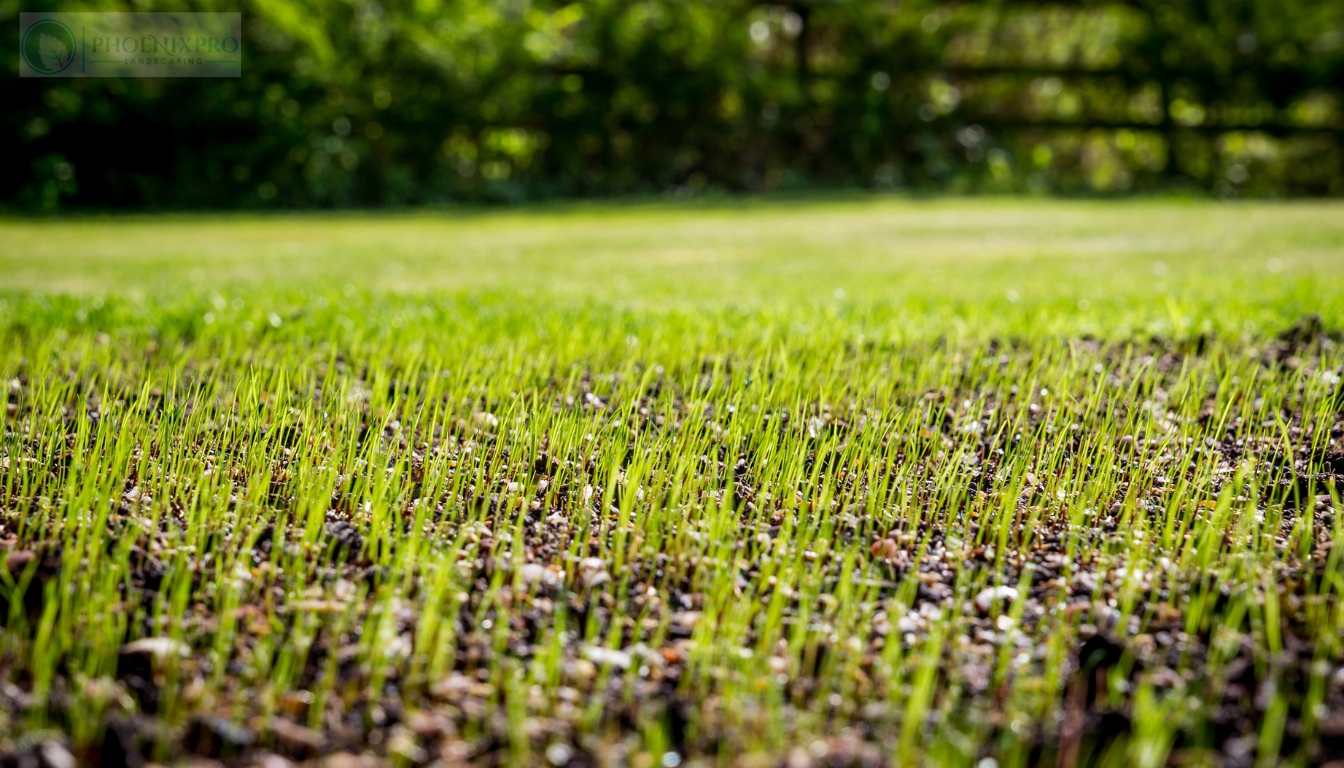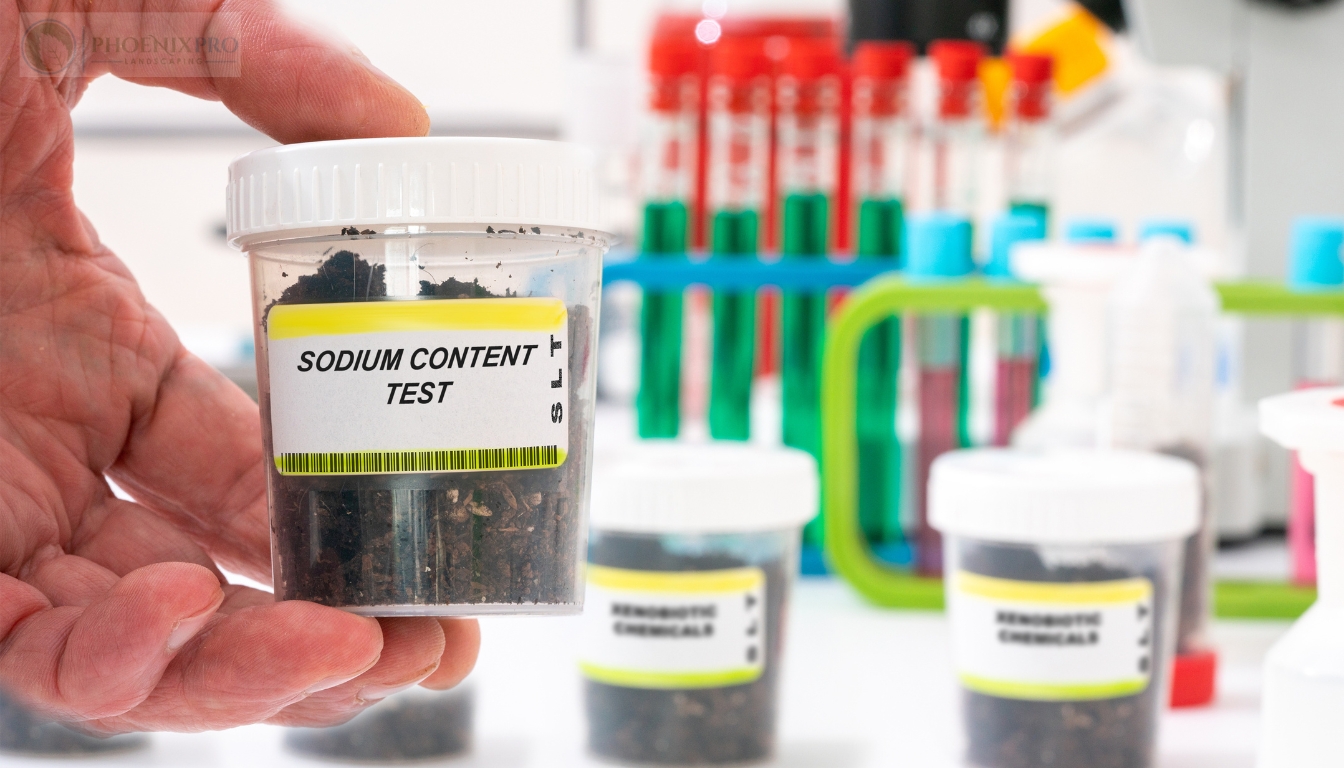Introduction
In today's fast-paced world, the importance of having a lush, vibrant lawn cannot be overstated. A healthy lawn not only enhances the aesthetic appeal of your home but also contributes to environmental sustainability. While many homeowners rely on synthetic fertilizers, there’s a growing trend toward organic lawn fertilization. This method focuses on natural solutions that promote healthier soil and grass without the harmful chemicals found in traditional fertilizers. In this article, we will explore the myriad benefits of organic lawn fertilization, effective methods to implement it, and why it's an essential part of comprehensive lawn care.
What is Organic Lawn Fertilization?
Organic lawn fertilization refers to the process of enriching soil using naturally derived products rather than synthetic fertilizers. These organic materials improve soil structure, enhance microbial activity, and provide nutrients essential for healthy grass growth.

The Science Behind Organic Fertilizers
Organic fertilizers are typically made from plant or animal waste—think compost, manure, or bone meal. These materials break down slowly in the soil, releasing nutrients gradually and promoting long-term health for your lawn.
Benefits of Organic Lawn Fertilization
Improved Soil Structure: Organic materials enhance soil aeration and drainage. Microbial Activity: They boost beneficial bacteria and fungi that support plant health. Nutrient Release: Nutrients are released over time, reducing the risk of leaching into water supplies. Environmental Safety: They minimize chemical runoff into local waterways.Why Choose Organic Over Synthetic?
Many homeowners ask themselves whether they should choose organic solutions over synthetic options for their lawns. Here’s why you might want to make the switch:
Healthier Grass Growth
Organic fertilizers feed the soil rather than just the plants. This leads to stronger roots and healthier grass that can better withstand pests and diseases.
Environmental Impact
Using organic fertilizers contributes to a cleaner environment by reducing pollution and promoting biodiversity in your garden.
Sustainable Practices
Organic methods promote sustainability by using renewable resources and reducing dependency on fossil fuels used in manufacturing synthetic fertilizers.
Lawn Care Basics: Understanding Your Needs
Before diving into organic fertilization techniques, it's crucial to understand your lawn's specific needs.
Soil Testing
Conducting a soil test is vital for understanding nutrient deficiencies or pH imbalances in your yard.
How often should you test your soil?
It's generally recommended to test your soil every 2-3 years.

Identifying Grass Types
Different grass types have varying nutrient requirements. Knowing what type you have will guide your fertilization strategy.
Common Grass Types:
- Kentucky Bluegrass Bermuda Grass Fescue
Organic Lawn Fertilization: Natural Solutions for a Greener Yard
When it comes down to it, organic lawn fertilization is about thoughtful choices that benefit both your yard and the planet. The term "natural solutions" encompasses various techniques you can employ to achieve this goal effectively.
Compost as Fertilizer
One of the best natural solutions available is composting kitchen scraps and yard waste. Compost improves soil health while providing necessary nutrients for your grass.
How to Make Compost:
Collect kitchen scraps (vegetable peels, coffee grounds). Add brown materials (leaves, cardboard). Turn regularly for aeration. Allow it to decompose for several months until ready.Natural Alternatives: Plant-Based Fertilizers
Plant-based fertilizers are another excellent option for those looking into organic solutions.
Types of Plant-Based Fertilizers
- Alfalfa Meal Soybean Meal Seaweed Extract
These options not only enrich the soil but also add beneficial trace elements that synthetic options often lack.
Animal-Based Options: Manure Use in Lawn Care
Animal manure can also serve as an effective organic fertilizer if handled properly.
Types of Manure
- Cow Manure Chicken Manure Horse Manure
Each type has its unique nutrient profile; however, they must be composted before application to eliminate pathogens and reduce odor.
DIY Liquid Fertilizer Recipes
Creating liquid fertilizers at home can be incredibly rewarding and economical!
Comfrey Tea Recipe
Gather comfrey leaves. Place them in a bucket filled with water. Let steep for 2-3 weeks. Strain and dilute before applying to your lawn.Application Techniques for Organic Lawn Fertilizers
Applying organic fertilizers correctly is key to maximizing their effectiveness.
Timing Matters!
The best time to apply organic fertilizer is during active growth periods—in spring and early fall—for most grass types.
Methodology
Using a broadcast spreader helps ensure even distribution across your lawn while minimizing waste or over-fertilization spots.
Combining Lawn Cutting with Fertilizing Strategies
Mowing practices can significantly influence how well your fertilizer works!
Grass Height Guidelines
Keeping grass at an optimal height encourages deeper rooting while reducing weed competition:
Recommended Heights:
- Cool-season grasses: 2-4 inches Warm-season grasses: 1-3 inches
Why Does Cutting Matter?
Short grass may struggle more against drought while taller blades can shade weeds out effectively!
Integrating Landscaping with Organic Practices
Your landscaping choices play a critical role in overall lawn health too!
Companion Planting
Planting flowers alongside grass can attract beneficial insects that control pests naturally while enhancing beauty.
Mulching Benefits
Mulch helps retain moisture around plants while suppressing weeds—making it easier when you’re focusing on maintaining a green yard through organic means!
Key Considerations When Hiring a Lawn Care Service
If you're not inclined to do it all yourself or simply lack time,
What should you look for in a service?
Here are some essential factors:
Experience with organic products. Customized plans based on soil testing. Reviews from previous clients highlighting success stories using natural methods.FAQs About Organic Lawn Fertilization
Q1: How often should I apply organic fertilizer?
A1: Typically, every 6–8 weeks during growing seasons is effective; however, follow specific product guidelines based on what you choose!
Q2: Can I use my leftover food scraps directly as fertilizer?
A2: It’s better first composted since direct application may attract pests or cause unpleasant odors!

Q3: Will my pets be safe around these natural products?
A3: Generally yes! However always check individual product labels; some manures may require extra caution until fully decomposed!
Q4: Is it more expensive than synthetic options?
A4: Not necessarily! With DIY methods combined with commercial options available today—organic alternatives can fit various budgets remarkably well!
Q5: How long does it take for results after applying?
A5: You http://soilpmjk497.lowescouponn.com/how-climate-change-is-affecting-modern-lawn-care-practices might see improvements within weeks; however complete transformation may take several months depending on existing conditions & chosen methods!
Q6: Do I need to water my lawn after applying fertilizer?
A6: Yes! Watering helps activate nutrients within products ensuring better absorption by grassroots leading towards optimal growth outcomes!
Conclusion
Embracing organic lawn fertilization opens up new avenues toward achieving that dream landscape you've always desired! By opting for natural solutions like composts or plant-based amendments—you contribute positively not only towards enhancing curb appeal but also safeguarding our precious ecosystem! Whether you decide on DIY strategies or seek out expert services—remember there’s no “one size fits all” approach here; understanding YOUR specific needs will pave path towards greener yards ahead!
So go ahead—make those changes today; unleash an oasis right outside your doorsteps where friends gather & children play amidst lush greenery thriving under careful nurturing through responsible practices—we assure you won’t regret it!